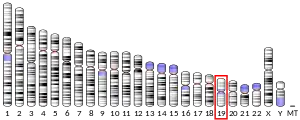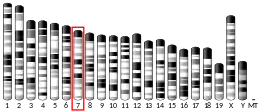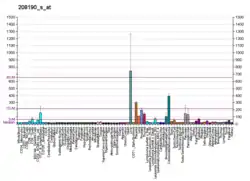| LSR | |||||||||||||||||||||||||||||||||||||||||||||||||||
|---|---|---|---|---|---|---|---|---|---|---|---|---|---|---|---|---|---|---|---|---|---|---|---|---|---|---|---|---|---|---|---|---|---|---|---|---|---|---|---|---|---|---|---|---|---|---|---|---|---|---|---|
| Identifiers | |||||||||||||||||||||||||||||||||||||||||||||||||||
| Aliases | LSR, ILDR3, LISCH7, lipolysis stimulated lipoprotein receptor | ||||||||||||||||||||||||||||||||||||||||||||||||||
| External IDs | OMIM: 616582 MGI: 1927471 HomoloGene: 9306 GeneCards: LSR | ||||||||||||||||||||||||||||||||||||||||||||||||||
| |||||||||||||||||||||||||||||||||||||||||||||||||||
| |||||||||||||||||||||||||||||||||||||||||||||||||||
| |||||||||||||||||||||||||||||||||||||||||||||||||||
| |||||||||||||||||||||||||||||||||||||||||||||||||||
| |||||||||||||||||||||||||||||||||||||||||||||||||||
| Wikidata | |||||||||||||||||||||||||||||||||||||||||||||||||||
| |||||||||||||||||||||||||||||||||||||||||||||||||||
Lipolysis-stimulated lipoprotein receptor is a protein that in humans is encoded by the LSR gene.[5][6]
References
- 1 2 3 GRCh38: Ensembl release 89: ENSG00000105699 - Ensembl, May 2017
- 1 2 3 GRCm38: Ensembl release 89: ENSMUSG00000001247 - Ensembl, May 2017
- ↑ "Human PubMed Reference:". National Center for Biotechnology Information, U.S. National Library of Medicine.
- ↑ "Mouse PubMed Reference:". National Center for Biotechnology Information, U.S. National Library of Medicine.
- ↑ Yen FT, Masson M, Clossais-Besnard N, Andre P, Grosset JM, Bougueleret L, Dumas JB, Guerassimenko O, Bihain BE (Jun 1999). "Molecular cloning of a lipolysis-stimulated remnant receptor expressed in the liver". J Biol Chem. 274 (19): 13390–8. doi:10.1074/jbc.274.19.13390. PMID 10224102.
- ↑ "Entrez Gene: LSR lipolysis stimulated lipoprotein receptor".
Further reading
- García JM, Peña C, García V, et al. (2008). "Prognostic value of LISCH7 mRNA in plasma and tumor of colon cancer patients". Clin. Cancer Res. 13 (21): 6351–8. doi:10.1158/1078-0432.CCR-07-0882. PMID 17975147.
- Otsuki T, Ota T, Nishikawa T, et al. (2007). "Signal sequence and keyword trap in silico for selection of full-length human cDNAs encoding secretion or membrane proteins from oligo-capped cDNA libraries". DNA Res. 12 (2): 117–26. doi:10.1093/dnares/12.2.117. PMID 16303743.
- Kim JE, Tannenbaum SR, White FM (2005). "Global phosphoproteome of HT-29 human colon adenocarcinoma cells". J. Proteome Res. 4 (4): 1339–46. doi:10.1021/pr050048h. PMID 16083285.
- Benzinger A, Muster N, Koch HB, et al. (2005). "Targeted proteomic analysis of 14-3-3 sigma, a p53 effector commonly silenced in cancer". Mol. Cell. Proteomics. 4 (6): 785–95. doi:10.1074/mcp.M500021-MCP200. PMID 15778465.
- Gerhard DS, Wagner L, Feingold EA, et al. (2004). "The status, quality, and expansion of the NIH full-length cDNA project: the Mammalian Gene Collection (MGC)". Genome Res. 14 (10B): 2121–7. doi:10.1101/gr.2596504. PMC 528928. PMID 15489334.
- Jin J, Smith FD, Stark C, et al. (2004). "Proteomic, functional, and domain-based analysis of in vivo 14-3-3 binding proteins involved in cytoskeletal regulation and cellular organization". Curr. Biol. 14 (16): 1436–50. doi:10.1016/j.cub.2004.07.051. PMID 15324660. S2CID 2371325.
- Grimwood J, Gordon LA, Olsen A, et al. (2004). "The DNA sequence and biology of human chromosome 19". Nature. 428 (6982): 529–35. Bibcode:2004Natur.428..529G. doi:10.1038/nature02399. PMID 15057824.
- Ota T, Suzuki Y, Nishikawa T, et al. (2004). "Complete sequencing and characterization of 21,243 full-length human cDNAs". Nat. Genet. 36 (1): 40–5. doi:10.1038/ng1285. PMID 14702039.
- Strausberg RL, Feingold EA, Grouse LH, et al. (2003). "Generation and initial analysis of more than 15,000 full-length human and mouse cDNA sequences". Proc. Natl. Acad. Sci. U.S.A. 99 (26): 16899–903. Bibcode:2002PNAS...9916899M. doi:10.1073/pnas.242603899. PMC 139241. PMID 12477932.
This article is issued from Wikipedia. The text is licensed under Creative Commons - Attribution - Sharealike. Additional terms may apply for the media files.




